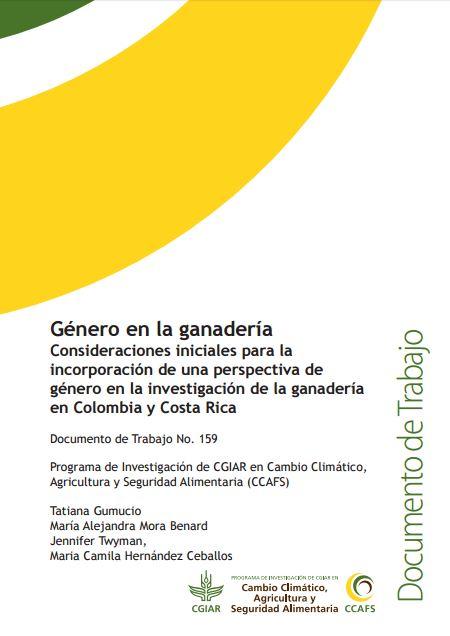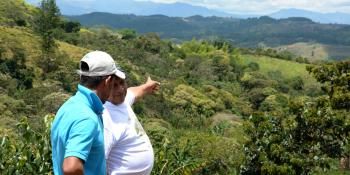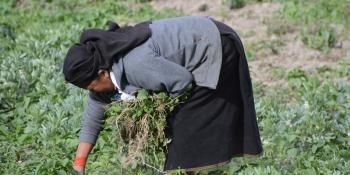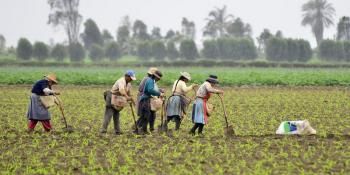Where are the women in livestock research in Costa Rica and Colombia?

Recent publication maps the state of research on gender and livestock in Latin America and identifies trends.
How can we develop research and policy in the Latin American livestock sector in order to promote sustainable and inclusive development? As a first step to answering this question, researchers from the International Center for Tropical Agriculture (CIAT) carried out a grey literature review of livestock production in Latin America from a gender perspective. Gender and livestock production is a relatively new research area in Latin America. For this reason, the baseline information provided by the recently published paper (in Spanish) can serve as a valuable resource for not only researchers but also policymakers and development practitioners working in the livestock sector in Latin America.
The paper is part of the LivestockPlus project, which seeks to support the development of mitigation actions in the Latin American livestock sector for the reduction of greenhouse gas emissions, with a focus on Costa Rica and Colombia. In line with this, the literature review targets these two countries.
Key findings from the literature review indicate a consistent trend to “invisibilize” women’s role in livestock production, due to the fact that their work is often not paid and is associated with household chores. In order to correct this and ensure effective and equitable development, the paper recommends that governments, development organizations and research centers recognize both men’s and women’s contributions to the livestock sector when they design policy initiatives and development interventions.
The paper also demonstrates that, although the state and livestock sectors in Colombia and Costa Rica have developed initiatives in recent years that aim to address gender inequalities, it is crucial that these programs take into account women’s needs and preferences in order to make sure that trainings and financial services are truly accessible to them.
To sum-up, the paper recommends that future research on gender in the livestock sector should prioritize women’s strategies for improving their and their families’ quality of life. Accurate information on men and women livestock producers’ innovative capacities will be essential for effective and equitable development in an era of climate change.
Download the working paper (in Spanish): Gumucio T, Mora Benard M. A., Twyman J, Hernández Ceballos M. C. 2016 Género en la ganadería. Consideraciones iniciales para la incorporación de una perspectiva de género en la investigación de la ganadería en Colombia y Costa Rica. Documento de trabajo CCAFS no. 159. Programa de investigación de CGIAR en Cambio Climático, Agricultura y Seguridad Alimentaria (CCAFS). Copenhague, Dinamarca.
Read more
Tatiana Gumucio is a Gender Postdoctoral Fellow in the Decision and Policy Analysis (DAPA) Research Area at CIAT in Cali, Colombia.




